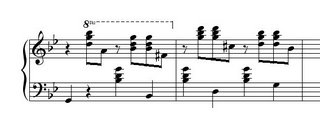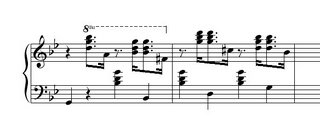“Yes, I confess, to my eternal chagrin I am indeed a chip man.” I couldn’t really believe this sentence fell out of my mouth. If you haven’t traveled on Amtrak recently, you are in for a surprise; pursuant to some distant policy, the Acela workers are now aggressively pushing product. I came up, ordered a hot dog and a soda, and in those pregnant, magical moments while the dog steamed in a mysteriously recessed industrial microwave, the man behind the counter proposed a bag of chips. “Nothing could be better than a cold soda,” he said, his eyes seeming to mist, “a hot dog, and some chips.” I was swept up (as so often) in his faux emotion; I paused, teetered, acquiesced. He smiled toothily. “Yeah, I thought you were a chip man, just from the look of you,” he said, and I had to admit the obvious. And that’s when I said the ridiculous sentence. I got a laugh from the woman next in line, and went back to my car and smeared Grey Poupon on my sweaty dog with an undeserved smile on my face of comic accomplishment.
Last night I found myself again clutching chips with amusement in a train, some baked KC Masterpiece Lays chips. Perhaps some distant delicious barbecued pork might, if perfectly cooked and served, be declared, after a beer or five, a “masterpiece,” with genuine slavering emotion, and yet, and yet! … after the translation of the barbecue to the sauce and of the sauce to the sauce powder and the powder into the baked, processed potato chip: in that process somewhere the “masterpiece” may have been lost. After eating several chips I ran my hands through my hair and realized now the reddish powder was part of my “do,” and thus decorated (a soldier of Sodium Benzoate) I braved the fluorescent return to the city. I held my head high as I strode through Grand Central Station, a man who is willing to enter the metropolis becrumbed. I must admit, to return, like some composers, to a recurring unimportant theme: I am truly a chip man; I perpetually feel a tension between the finite nature of life and the seemingly infinite nature of chips to be consumed. Many evenings have I succumbed to late night chip-and-salsa cravings only to wake at 3 am with a sour post-vision of chile and garlic and the oily remnants of fried corn tortillas weighing down my pores. And despite all this punishment and regret beyond measure the chip still stands, still calls… like a Siren …
I have been peripatetic of late and obviously the to-and-fro has tolled upon my brain horrendously. When you travel you often practice in strange places and of course, like any migrating species, you have to explore your new terrain, get a feel for predators, food supply, etc. I was sitting in a beautiful studio in NEC (thanks so much Ms. Byun!) and when you are in teachers’ studios and you find yourself unable to concentrate you wander and peep. There were several xeroxes on a counter and this one caught my eye:
But precisely the most important and best thing, namely, that unnoticeable variability of the tempo, of the timbres, simply does not happen in a mechanical way and through rehearsal…
The greatest technical correctness and control one can achieve does not replace the lack of inspiration; but it does have the most fateful consequences for music making as a whole. Excessive technical control, that is, the evenly executed technical perfection of all details, which as such take on a completely different character than intended by their creators, who in their conception always proceeded from the whole. The naturally productive route by which the details are viewed and interpreted by way of the whole, is turned around. The improvisational element is essentially lost, indeed it loses its very concept–this improvisational quality, which does not represent some mere accident, something one can do with or without, but rather is, quite simply, the ultimate source of all great, creative, necessary music-making.
–Furtwangler
Wow. I was really enjoying that quote, from very near the outset, with that enticing phrase the “unnoticeable variability of the tempo, of the timbres.” It’s so very true, that the smallest shifts in tempo feeling are what often make the difference for me between redemptive and annoying performances; or as my late teacher used to say, motion is not as important as mobility. It was late in the evening; Boston lights twinkled; and I was gradually giving in (not very reluctantly) to the notion that no more practicing could be done and thinking emotionally about the softness of my bed at the delightful Bertram Inn, when I realized I was listening, without knowing it, to some student practicing the Chopin G minor Ballade. Mystery Student X assayed a plain version of the coda, which all persons affiliated with the piano must view as one of those inescapable obstacles of music education; as one of those perennial iconic misfortunes which the great genius of Chopin visited upon the planet, in order that endless multitudes of students and faculty learn to suffer and endure; a passage of brilliance, originality and virtuosity so endowed with attraction that it must paradoxically be destroyed under the steamroller of endless repetition. I’m talking about:
And after one run-through of that, X was obviously dissatisfied. Perhaps it was uneven? It all sounded clean to me, through the wall, a notoriously unreliable filter, but perhaps (and I know it well) there was some lingering fear of possible future missed notes, even in the absence of present ones. And so X began practicing “in rhythms”:
AAAAAAAHHHHHH! I stared at the Furtwangler quote, propped on the piano, and he seemed to be speaking, screaming, begging for the Chopin to stop, begging for the Details to be forgotten and the Whole once more to be glimpsed and attempted; and I envisioned the forces of Evenness and the forces of Variability locked in mortal combat, grappling for the soul of the modern Conservatory. The student could never have known how ironic his/her practicing was to me at the moment. It was all too much, I snapped up my Chausson and my quote and my bag and left NEC behind in my dust, via the agency of an insane Boston cabbie (is there any other kind?), who wanted to take lessons from me (me! the madman who fled the Conservatory at 10 pm!) and back at the Inn half-dressed I watched doctors slowly and methodically remove a 200-pound tumor from a woman, and wondered how it got to be 200 pounds, and fell into a deep but unnoticeably variable sleep.





9 Comments
wow. from bbq chips to furtwangler–this is what i like about this blog! i have one complaint/question–i would think that a man of your intelligence would know not to replace the word “photocopies” with “xeroxes!”
I agree with Furtwangler’s premise, but I’m not sure how far it goes to the poor practicer in the next studio – I’ve always viewed practicing as a safe place to build one’s arsenal of possible techniques (like arrows in a quiver is my favorite metaphor) that might be employed when in the heat of battle (performance). Perhaps the person working on the Ballade was guarding against what might happen in performance, as far as uneveness, and just working to make it more secure. Nothing wrong with that, IMO, but I get the need for spontaneity in performance, don’t get me wrong. The wonderful moment for me with a new piece is that time when I just cannot practice it any more – it needs to be performed to get it to the next level. Often a piano run-through of a concerto for a few friends or family, or a performance at a nearby nursing home or hospice will do the trick nicely, as well as providing a needed service. The joy in performance is the suddenly discovered fingering, rubato, shading of vibrato, and countless other things that don’t necessarily go the way you want them to, but work nonetheless.
i saw that medical atrocity too and wondered why they couldn’t remove the tumor at 20 lbs instead of 200 as i inhaled my own bag of chips.
That was one of the funniest life commentaries I have ever read. From the chip confession to “becrumbed” to “AAAHHHHH”, I was dying laughing. Of course, I think it is a horrible feeling to be practicing and have it occur to you that vastly superior player could be listening in. You’re making a fan out of me. Maybe I can get to San Francisco in November to see you.
hahaha i’ve actually seen that program about the 200 lb tumor discovery health channel was it?
grey poupon … do you just happen to carry around a bottle of grey poupon in your car, or do they make little packets of the delectable condiment? i definitely see value in carrying around a bottle of gp in your car, although the heat could make it … interesting.
kc masterpiece chips … i honestly don’t find any chips a masterpiece. i am indeed NOT a chip woman. although, there are those late nights when i have cravings for sour cream and cheddar lays … yum.
i must pass that furtwangler quote onto my friend dexter … he’s a piano and violin double major, so i bet he will find great truth in it. and chopin … again reminds me of dexter, since he’s always playing chopin when i’m doing my homework in m2 (practice room) while he practices.
i noticed the other day that you’ll be in san fran a couple times this season, so i’ll try and come see you perform. 🙂
Supermodel Cindy Crawford has denied a French magazine’s claims that she is a fan of Botox.
French style magazine Gala recently quoted Crawford as saying: “I’m not going to lie to myself: past a certain age, creams work on the texture of you skin but, in order to restore elasticity, all I can really count on is vitamin injections, Botox and collagen.
“I owe the quality of my skin to a cosmetic surgeon.”
However, a spokeswoman for Crawford has denied that the model ever spoke to the magazine and revealed that Crawford is hurt and upset by the false article.
Nicole Caruso said to BreakingNews: “Cindy didn’t make the statements attributed to her in the article.
“We’re investigating this matter fully and intend to take all appropriate action against the source of the falsehoods.”
The “Whole”‘s not worth very much if you mess up all the details along the way.
Walter Ramsey
ramseytheii@hotmail.com
“I perpetually feel a tension between the finite nature of life and the seemingly infinite nature of chips to be consumed.” Be sure and save some time for Mike Sells Habanero Flavored chips before you’re through. . . I love this blog.
“What is an interpretation? Look, the composer has got it here, on paper. But in many cases, much is unclear. Bartok has made an effort to clarify things by marking in one passage, ’21 seconds’. But I can do it six different ways in 21 seconds….
“There is one thing you cannot learn from a score: you might know a score, exactly what it is and what comes next, but until you have hurt yourself on the inertia of the matter, you have no real idea of it.”
— Herbert von Karajan, interview with Irving Kolodin, in HvK’s boxed set of Beethoven symphony lps, mid-1970s